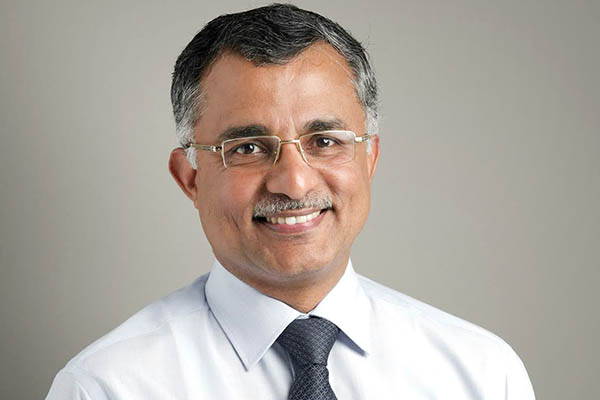Stress and unhealthy living are driving up levels of heart disease among the Gulf’s young Indian population, according to a visiting expert.
Dr R Anil Kumar sounded the alarm over the growing numbers of young Indian expatriates in the GCC experiencing cardiac problems.
He added that 90 per cent of cases were connected to smoking, high blood pressure, high blood sugar and high cholesterol, as well as family medical history.
“Over the past two decades heart attacks and blockages are increasingly noted, mainly in the Asian population and most specifically in the young Indian population,” Dr Kumar told a media round table yesterday.

Dr Kumar
“It is getting prevalent in even younger groups, unlike in the past when people suffered heart attacks in their 60s and 70s.
“During the last decade people have been having them in their 40s and now even in their 20s.
“Five major factors contribute to heart diseases – smoking, high blood pressure, high blood sugar, high cholesterol and family history.
“These contribute to 90pc of heart diseases, which are mainly heart attacks and blocked arteries, and the remaining 10pc might be other factors.
“All these factors, except those which are heredity, are related to stress.
“The young population these days suffers high cholesterol, blood sugar and blood pressure.
“These conditions, plus bad lifestyle practices, lead to an increase in the incidents of heart attacks.”
The GDN has learnt that at least four people in Bahrain, three Indians and a Bangladeshi, died after suffering heart attacks last week.
Their ages ranged from just 27 to 45 and Dr Kumar, a cardiovascular consultant at Aster Medcity in Kochi, India, revealed up to 15pc of the centre’s heart patients lived in the Gulf.
However, he added the number of deaths and disabilities resulting from cardiac disease could be halved through better life choices.
He also warned that young people of both sexes were ignoring early symptoms, making the situation worse.
“Sometimes they know their condition, but they don’t control it thinking that medicine is the enemy,” he said at Aster Medical Centre, in Gudaibiya.
“Nobody wants to be on life-long medication, especially from a young age like your 30s, but medicines don’t kill you – it is the complications from these risk factors that kill you.”
For many expats in Bahrain stressful lifestyles that involve long working hours, often for low pay, are compounded by the pressures of supporting families back home.
However, Dr Kumar added that stress and poor diets were not only confined to low-income workers, such as labourers, and warned people in general were “wired to stress” – often displaying poor sleeping habits.
“Nowadays we are expected to reply to an e-mail even at night and our sleep is disturbed by notifications on our smartphones, which is not helpful,” he said.
“We are wired to stress, while there is a definite need for the heart to re-establish its rhythm through proper rest and peace, at least for six to eight hours.
“All these factors work negatively on blood sugar and pressure, leading to blocked arteries.”
Dr Kumar also gave a talk at the Pakistan Club, in Manama, yesterday highlighting his seven-point “ESSCAPE” strategy for preventing heart disease, which stands for eating healthily; stopping smoking; control of blood sugar, pressure and cholesterol levels; the use of low doses of aspirin among high risk groups; and regular exercise.
He will address medical professionals at The K Hotel, in Juffair, today from 1.30pm to 2.15pm.
raji@gdn.com.bh


&uuid=(email))